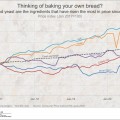
Baking bad during lockdown
You’ve waited too long. Your friends have tried it, you’ve seen the videos, you’re feeling the FOMO. You roll up your sleeves – it is time to bake your own lockdown bread. The kitchen is ready. The ingredients are all set out. Two cups of boiling water – check! Instant yeast, brown sugar, salt, flour read more »
Stats Biz – July 2020
I scream, you scream, we all scream for ice cream! 19 July is international ice cream day. To celebrate, Stats SA takes a look at how much ice cream contributes to total household spending. Explore ice cream, as well as other stories, in this edition of Stats Biz. Download Stats Biz – July 2020
Mbalo Brief – July 2020
On 28 July 2020, Statistics South Africa (Stats SA) published the Quarterly employment statistics (QES) survey results for the first quarter of 2020. According to the survey, the formal non-agricultural sector shed 3 000 jobs in the first quarter of 2020. This brings the total number of persons employed in the formal non-agricultural sector in South Africa to read more »
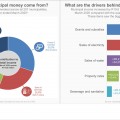
An update to municipal spending and revenue (March 2020)
Local government increased spending by 12,2% over the last year, driven largely by increased spending on employee costs. South Africa’s 257 municipalities spent R96,8 billion in the quarter ended March 2020 on operational costs, up from R86,3 billion in the quarter ended March 2019. This excludes capital spending. The latest Quarterly financial statistics of municipalities report shows read more »
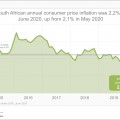
Inflation rate edges up in June
Annual CPI inflation was 2,2% in June, slightly up from 2,1% in May. The monthly increase was 0,5% – a reversal of the -0,6% recorded between April and May. The dominance of fuel price changes recorded in the previous few months continued in June. Fuel prices increased by 7,5% from May to June, with petrol read more »
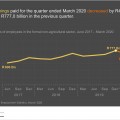
Decline in formal sector jobs in first quarter 2020
According to the Quarterly employment statistics (QES) survey released by Statistics South Africa (Stats SA) the formal non-agricultural sector shed 3 000 jobs in the first quarter of 2020. This brings the total number of persons employed in the formal non-agricultural sector in South Africa to 10,2 million. According to the report, formal sector jobs rose read more »
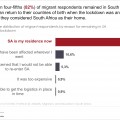
Mobility and migration in SA during the COVID-19 lockdown
Statistics South Africa (Stats SA) has released the third and final round of a series of three online web-based surveys to measure the impact of the COVID-19 pandemic on individuals in the country. The third round of the survey (Wave 3) focused on migration and education issues for persons residing in South Africa who are read more »
The June CPI will use special imputation methods
The June CPI will use special imputation methods to account for the shift from Level 4 to Level 3 lockdown restrictions on consumer spending. Stats SA has published a note to explain the circumstances in which different methods will employed. An updated publication schedule for the remainder of 2020 is included in the note. During August read more »
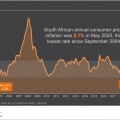
CPI inflation slows to 2,1% in May
Annual consumer price inflation fell to its lowest reading since September 2004, dragged lower mainly by falling fuel prices. The Consumer Price Index (CPI), which measures the prices of a range of consumer goods and services, increased by 2,1% in May 2020 compared with May 2019. The reading for September 2004, 15 years and eight read more »
Update on the Consumer Price Index (CPI) for May
The May CPI will be published on Wednesday, 15 July. At the heart of measuring inflation is the comparison of prices of a fixed set of products in two periods. The COVID-19 lockdown restrictions and gradual normalisation have posed particular challenges for the calculation of the consumer price index. Special imputation methods were used in read more »

